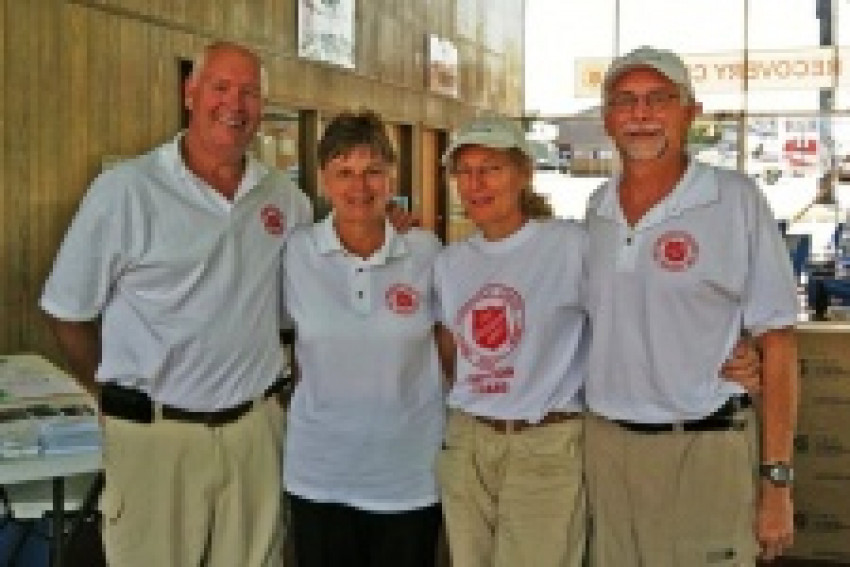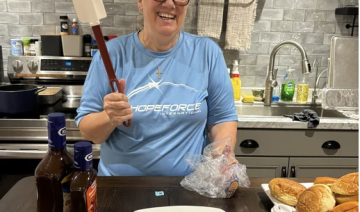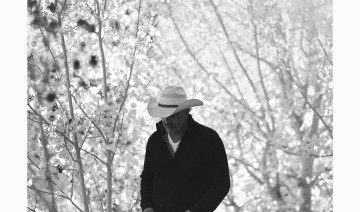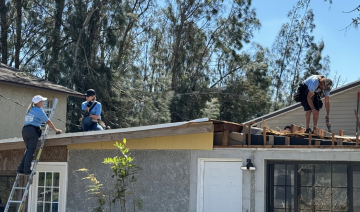
Back to Joplin
July 30, 2011
Veterans of 25 years of involvement with International Aid initiatives, Rene and Marianne Lako spent the better part of 2010 in Haiti spearheading efforts to provide much-needed relief for the country's earthquake victims. Currently finishing a Hope Force deployment to Joplin, Missouri, they have been an integral part of the tornado relief efforts in this region. Following is Rene's perspective on this unique opportunity:
On Day 4 after the devastating Joplin tornado, Marianne and I were deployed as HFI Reservists and began our work with the Salvation Army relief efforts. The level of destruction was stunning. It was unlike anything we had seen before in a Western country. As Marianne coordinated supplies and donations, I served in a tent where tornado survivors and volunteers could find a cold drink, something to eat and an encouraging word. We left convinced that a person who loses everything in a tornado needs lots of practical, emotional and spiritual help.
Several weeks after our initial visit, we came back to Joplin. As soon as we arrived, we drove around some of the areas where we had seen so much evidence of the tornado ? trees stripped of all the bark with not a leaf left, houses leveled into heaps of debris and thousands of volunteers and survivors trying to clear rubble and find personal items amid the destruction.
Now the scene had changed. Our first impression was that so much of the debris had been cleared block by block in several areas of the nearly eight-mile "tornado zone". Instead of many individual volunteers, there were now numerous commercial companies with heavy equipment and huge trucks continuing the cleanup. Of the 7,000 destroyed and damaged homes, quite a few were totally cleared and gone; sometimes a lone left-over home would show a sign reading "do not demolish". Many of the 500 businesses were rebuilding or already back in business. And trees were growing new twigs and leaves.
On our second trip to Joplin, our work at the Salvation Army was different, too. The remains of the Salvation Army thrift store had been reduced to just the slab, and the tents were gone. All relief work now took place at the older Salvation Army building, known as the Recovery Center. I served as one of four social case workers who had intake talks with survivors. I spoke to anywhere from 8 to 18 people on a typical day. On the busiest day at the Recovery Center, the four case workers saw 69 cases total. After they spent time with a case worker, victims could shop for free at the distribution center, which carried clothing, food, hygiene items, cleaning supplies and other items. They could also receive other assistance depending on their need.
Generally, my intake talks involved letting the survivor tell their story and talk about what materialized on May 22nd. We discussed the tornado event and how they survived. Often I just listened to the stories, a box of tissues close at hand. It's a ministry of presence and listening with love, being there for them -- for the mom who comes with her little kids, or the grown men who sits weeping.
One person told us she had recovered only three boxes of personal items from her totally leveled home. Another man related that he had hung on to his truck and a light pole in a parking lot during the storm. And another had literally flown through the sky and ended up a couple blocks away severely injured. Someone had been through Hurricane Katrina, lost everything and now this. Another woman had been through a tornado less than 10 years ago, only to move into Joplin one week before this tornado and again lose everything. Some came in cars with blown out windshields, headlights out, doors broken. Many had lost cars and not even found any remains. The stories went on and on and on...
With so much suffering, grief and loss, there was more needed and provided than material and social care; it was obvious that emotional and spiritual care were an important part, and I was given the opportunity to spend extra time with people as needed. In the majority of cases I could pray with people after our time together. Some came back the second week, and we had an opportunity for follow-up. These were no longer just 'cases, but survivors and friends, and I was humbled that God allowed me to be the one sharing His love in reaching out to them.
On this second trip, Marianne also had a vital task. She welcomed the people coming for help, and reviewed their FEMA papers and picture ID to establish if they were genuine tornado survivors. Once it was deemed a legitimate case, she would assign them to one of the case workers. The desk was a busy place, but when time allowed she would also let people tell their stories, sometimes praying with them as well.
The days flew by, and before we knew it the time to say goodbye again had come. Joplin had already changed; for some people hope had been found through new housing, new jobs, a new car, but much more is needed. Some of the survivors do not want to leave their property and are living in their damaged home or in a tent on their grounds, while others are still in a motel or living with family.
Driving through Joplin showed us much progress and change, and we could see change in the survivors as well. We were also changed; the poor and needy are not just in the developing world, they are right there in Joplin. But there is much more to be done. Please continue to pray for the Joplin tornado survivors, that from victims they will become victors.
Hope Force International is a national partner of the Salvation Army, with a signed Memorandum of Understanding that provides a protocol for partnership in times of significant disaster events.





